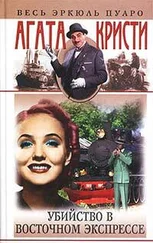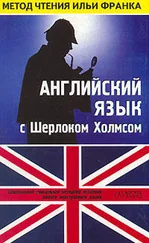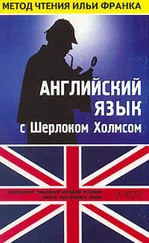danger ['deIndZ@] beforehand [bI'fO:h&nd] jigsaw puzzle ['dZIgsO:,pVz(@)l] fantastically [f&n't&stIk(@)lI]
The passengers in the Stamboul carriage were in no danger. Every minute detail of their evidence was worked out beforehand. The whole thing was a very cleverly planned jigsaw puzzle, so arranged that every fresh piece of knowledge that came to light made the solution of the whole more difficult. As my friend M. Bouc remarked, the case seemed fantastically impossible! That was exactly the impression intended to be conveyed.
“Did this solution explain everything (все ли объясняло такое решение) ? Yes, it did (да) . The nature of the wounds (характер ранений; nature — природа, мир; свойства, характер /чего-либо/) — each inflicted by a different person (каждое /из которых/ было нанесено разными людьми) . The artificial threatening letters (фальшивые угрожающие письма; artificial — искусственный, не природный; поддельный, фальшивый; letter — буква; письмо) — artificial since they were unreal (фальшивые, поскольку они были ненастоящими; unreal — нереальный, воображаемый; ненастоящий, поддельный) , written only to be produced as evidence (написанные только для того, чтобы предъявить в качестве улики; evidence — основание, данные; доказательство, улика) . (Doubtless there were real letters (несомненно, были и настоящие письма; doubt — сомнение, нерешительность) , warning Ratchett of his fate (предупреждающие Рэтчетта о его участи; fate — судьба, рок; участь; гибель, смерть) , which MacQueen destroyed (которые Маккуин уничтожил) , substituting for them these others (заменив их этими другими /письмами/) .)
nature ['neItS@] wound [wu:nd] artificial [,A:tI'fIS(@)l] destroy [dIs'trOI]
“Did this solution explain everything? Yes, it did. The nature of the wounds — each inflicted by a different person. The artificial threatening letters — artificial since they were unreal, written only to be produced as evidence. (Doubtless there were real letters, warning Ratchett of his fate, which MacQueen destroyed, substituting for them these others.)
Then Hardman’s story of being called in by Ratchett (затем, история Хардмана о том, как Рэтчетт нанял его на службу; to call in — потребовать назад; призывать на военную службу) — a lie, of course, from beginning to end (ложь, конечно же, с начала до конца) . The description of the mythical ‘small dark man with a womanish voice’ (описание вымышленного "смуглого мужчины невысокого роста с писклявым голосом"; mythical — мифический; фантастический, вымышленный; womanish — женский; пренебр. женоподобный, бабий) — a convenient description since it had the merit of not incriminating any of the actual Wagon Lit conductors (очень удобное описание, так как оно обладало тем достоинством, что оно не бросало тени подозрений ни на кого из /настоящих/ проводников спальных вагонов; merit — заслуга; достоинство; to incriminate — вменять в вину, обвинять) and would apply equally well to a man or a woman (и одинаково хорошо подходило как к мужчине, так и женщине; to apply — обращаться с просьбой; применяться, касаться, относиться) .
mythical ['mITIk(@)l] womanish ['wUm@nIS] convenient [k@n'vi:nI@nt] equally ['i:kw@lI]
Then Hardman’s story of being called in by Ratchett — a lie, of course, from beginning to end. The description of the mythical ‘small dark man with a womanish voice’ — a convenient description since it had the merit of not incriminating any of the actual Wagon Lit conductors and would apply equally well to a man or a woman.
“The idea of stabbing is at first sight a curious one (идея заколоть /Рэтчетта/ — на первый взгляд довольно странная; sight — зрение; первый взгляд; curious — любознательный; странный, чудной) , but on reflection nothing else would fit the circumstances so well (но, по зрелом размышлении, /оказывается, что/ ничего больше не подходило бы обстоятельствам настолько хорошо; reflection — отражение; размышление, раздумье; to fit — соответствовать, годиться) . A dagger was a weapon that could be used by everyone (кинжал — это такое орудие, которым может воспользоваться каждый) — strong or weak (сильный или слабый) — and it made no noise (и от него нет никакого шума; to make a noise — шуметь, поднимать шум) . I fancy, though I may be wrong (я полагаю, хотя я могу и ошибаться; to fancy — воображать, представлять себе; предполагать, полагать) , that each person in turn entered Ratchett’s darkened compartment (что каждый, по очереди входил в затемненное купе Рэтчетта; turn — оборот, поворот; очередь; to darken — делать темным, затемнять) through that of Mrs. Hubbard (через купе миссис Хаббард) — and struck (и наносил удар; to strike (struck, stricken) — ударять, бить) ! They themselves would never know which blow actually killed him (они сами никогда не узнали бы, чей удар на самом деле убил его) .
sight [saIt] circumstance ['s@:k@mst&ns, 's@:k@mst@ns] weapon ['wep@n] noise [nOIz]
“The idea of stabbing is at first sight a curious one, but on reflection nothing else would fit the circumstances so well. A dagger was a weapon that could be used by everyone — strong or weak — and it made no noise. I fancy, though I may be wrong, that each person in turn entered Ratchett’s darkened compartment through that of Mrs. Hubbard — and struck! They themselves would never know which blow actually killed him.
“The final letter which Ratchett had probably found on his pillow was carefully burnt (последнее письмо, которое Рэтчетт, возможно, обнаружил у себя на подушке, было тщательно сожжено; to burn (burnt, burned)) . With no clue pointing to the Armstrong case (без единой улики, указывающей на дело Армстронгов; clue — ключ к разгадке; улика) there would be absolutely no reason for suspecting any of the passengers on the train (не было бы совершенно никакой причины подозревать кого-либо из пассажиров в этом поезде) . It would be put down as an outside job (все бы объяснили действиями постороннего человека; to put smth. down to smth., — приписывать что-либо чему-либо, объяснять что-либо чем-либо; outside — наружный, внешний; внешний, посторонний; job — работа, дело, труд; разг.сл. избиение, нанесение увечий, грабеж и т.п.) , and the ‘small dark man with the womanish voice’ (а "смуглого мужчину невысокого роста с писклявым голосом") would actually have been seen by one or more of the passengers leaving the train, at Brod (действительно был бы увиден одним или несколькими пассажирами покидающим поезд в Броде) !
Читать дальше






